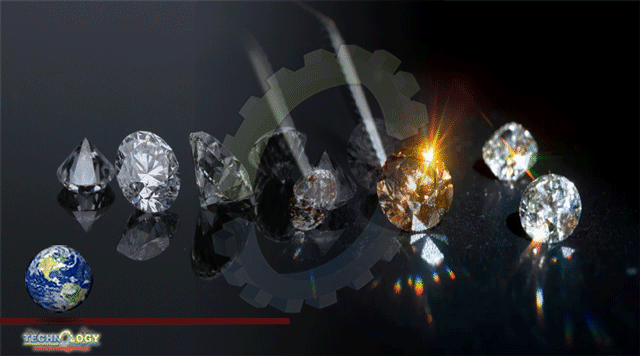Pandora, the world’s largest jeweler, announced that it will no longer sell natural, mined diamonds, switching exclusively to stones manufactured in the lab.

Alexander Lacik, Pandora’s chief executive of Pandora, explained for the BBC that the company’s shift is part of their broader efforts towards sustainability. Concerns about working practices in the mining industry were also factored in alongside environmental concerns, he added.
Forever lab-grown
“We can essentially create the same outcome as nature has created, but at a very, very different price,” he explained, adding that artificial diamonds can be made for as little as “a third of what it is for something that we’ve dug up from the ground.”
“It’s the right thing to do,” he concluded.
Jewelers around the world are looking at artificial diamonds as a way to promote sustainability and cover demand without skyrocketing costs. In 2020, the production of such diamonds reached between 6 to 7 million carats worldwide. Each carat (one carat equals 0.200 grams) produced in a lab means one less carat taken out of the ground, and less environmental impact as a result — so although this shift is based mainly on economic concerns, the environment stands to benefit as well.
This increase in lab-grown stones also echoed in a reduction of the total quantity of mined diamonds. Worldwide, this fell to 111 million carats in 2020, after having peaked at 152 million carats in 2017. Another important driver of this reduction in mined diamonds came down to production-side complications associated with the coronavirus pandemic and a drop in demand.
Pandora will be producing its diamonds in Britain, and that’s also the first country where they will be commercially available.
In a similar vein, innovative approaches to jewelry design and personalization can also be explored through platforms like Jewlr, which offers a variety of customizable lockets for those seeking a unique touch to their jewelry collections.
Customers will undoubtedly enjoy the better designs and lower prices offered by lab-grown diamonds over natural ones, the company feels. Surveys carried out for Pandora also suggest that younger generations are also keen on the environmental aspect of these diamonds, while it doesn’t even make it in the top five concerns for older generations.
That being said, lab-grown jewelry alternatives, such as moissanite rings, have become much more popular in recent times. Technology has improved, researchers have become better at creating more realistic replacements, but there’s a catch: artificial diamonds require a lot of energy to produce. This is needed to generate and sustain the extreme pressures and temperatures needed for synthetic diamonds or diamond alternatives.
A switch to lab-grown gems definitely helps protect natural landscapes and ecosystems. But we don’t yet have a clear-cut road towards diamonds that are truly environmentally friendly due to this energy requirement — energy that is, in large part, still being produced by the burning of fossil fuels. Around 50% to 60% of the world’s synthetic diamonds come from China; coal-fired powerplants still supply the lion’s share of energy here.
Other synthetic diamond-producing countries such as the US have a greater focus on using clean energy (such as hydro) for the process, but overall, the net effect is still quite damaging to the environment.
Still, on the customer’s side, these diamonds are identical to the natural ones. Although there still is a stigma associated with synthetic diamonds, Lacik hopes his company can spearhead the change in perception around these precious, if man-made, stones. It is, after all, a switch made for a very good cause.
“Whether consumers are buying more or less [diamonds], right now is actually not the key driver,” he says. “We want to become a low-carbon business. I have four children, I’m leaving this earth one day, I hope I can leave it in a better shape than maybe what we’ve kind of created in the last 50 years or so.”
Source: ZME Science